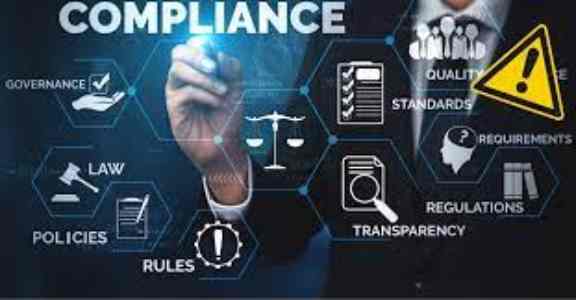A term that is central to various fields, is more than just a buzzword. It plays a critical role in maintaining the integrity, security, and ethical standards of organizations across different industries. In this article, we’ll delve into the world of compliance, providing a comprehensive overview that covers its significance, key areas, and the challenges it presents.
Defining Compliance
At its core, It refers to the act of adhering to laws, regulations, standards, and guidelines relevant to a specific industry or organization. It’s about conducting business in a way that aligns with legal and ethical requirements, and it’s not limited to a single aspect but encompasses a broad spectrum of considerations.
The Importance of Compliance
It is a fundamental element that underpins the trust of stakeholders in an organization. Here’s why it’s essential:
1. Legal Obligations
That ensures that an organization operates within the boundaries of the law. Failure to comply can lead to legal consequences, including fines, sanctions, and even criminal charges.
2. Reputation Management
Adhering to ethical and legal standards enhances an organization’s reputation. A good reputation is invaluable, as it can attract customers, investors, and partners.
3. Risk Mitigation
That helps in identifying and mitigating risks. By following established regulations, organizations can minimize the chances of unexpected crises.
4. Data Protection
In an age where data is king, It ensures that sensitive information is handled securely, protecting the privacy of both customers and employees.
Key Areas of Compliance
That isn’t a one-size-fits-all concept. It varies depending on the industry and the nature of the organization. Here are some key areas:
1. Regulatory Compliance
This involves adhering to laws and regulations set by government authorities. Industries like finance, healthcare, and environmental protection have stringent regulatory requirements.
2. Data Privacy
In the digital age, protecting personal data is crucial. Compliance with data protection laws, such as GDPR in Europe and HIPAA in the healthcare sector, is paramount.
3. Financial Compliance
Financial organizations must comply with a range of financial regulations to maintain transparency, prevent fraud, and protect consumers.
4. Environmental Compliance
Industries that impact the environment, such as manufacturing and energy, must adhere to environmental standards to reduce their ecological footprint.
5. Ethics and Governance
Compliance extends to ethical considerations and corporate governance. This ensures that businesses are conducted transparently and ethically.
Challenges in Compliance
While compliance is essential, it also presents several challenges:
1. Complexity of Regulations
The regulatory landscape is constantly evolving and can be complex. Staying updated and interpreting these regulations can be challenging.
2. Resource Constraints
Compliance often requires additional resources, both in terms of personnel and finances, which can be a burden on organizations, particularly small and medium-sized enterprises.
3. Cross-Border Compliance
Global organizations must navigate the complexities of different regulatory frameworks in various countries.
4. Compliance Technology
The use of technology in compliance can be a double-edged sword. While it can streamline processes, it also poses cybersecurity risks.
Compliance Best Practices
To ensure effective compliance, organizations should consider the following best practices:
1. Commitment from Leadership
A commitment to That from top leadership sets the tone for the entire organization.
2. Regular Training
Employees need to be aware of His requirements through ongoing training programs.
3. Risk Assessments
Conduct regular risk assessments to identify vulnerabilities and develop strategies for mitigation.
4. Auditing and Monitoring
Regular audits and monitoring processes help ensure that measures are being followed.
Conclusion
That is not a choice but a necessity in the business world. It’s an ongoing commitment to ethics, regulations, and standards that protect organizations, their stakeholders, and the public. By understanding the importance of compliance, addressing key areas, and implementing best practices, organizations can navigate the complex landscape of rules and regulations effectively, ensuring their long-term success and sustainability.




